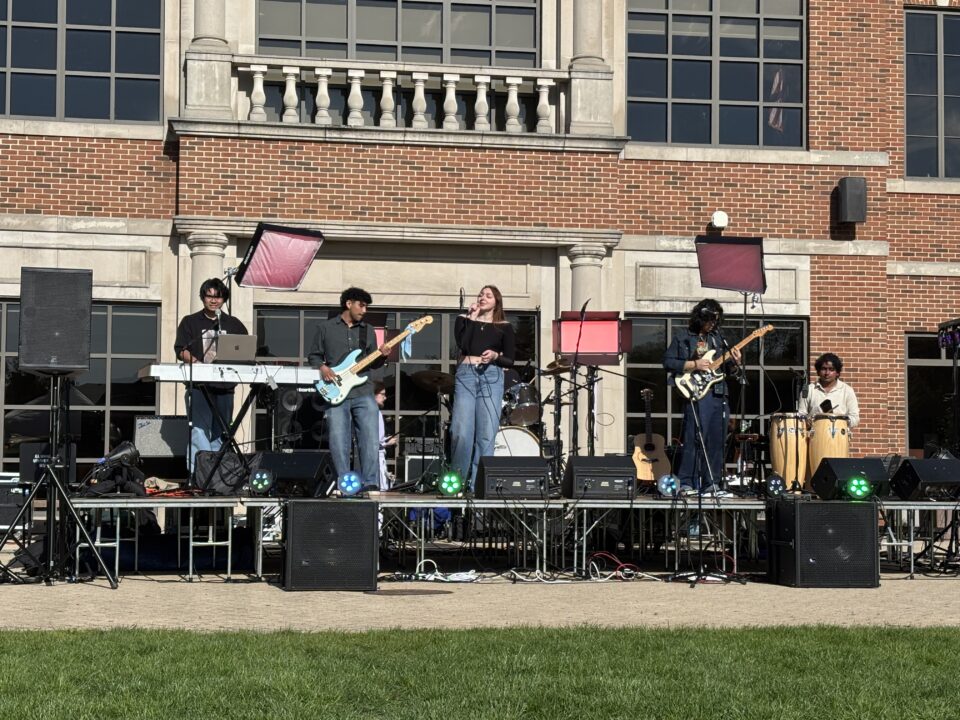Film List: Presidents in peril
For the first time in Donald Trump’s presidency, it seems likely that he will be impeached. Hopes are high that, following an impeachment, Trump will summarily be booted from office, but things have never been that simple. As red-handed as we’ve caught our president, he is a slippery beast just by virtue of being who he is: the most well-protected man in the world. Simply put: impeachment is a likely thing, but removal… not so much.
Still, all eyes are on the White House at this moment, so it is only a matter of time before major motion pictures about the Trump presidency go into production. This is an administration which, in just one term, has already accumulated an unprecedented amount of baggage, shadiness, and corruption, which makes for the kind of dramatic gold studios clammer for. Now is as good a time as any to look at movies which put a magnifying glass on the most powerful people in U.S. history; specifically, the eventfulness of their uprisings, the chaos of their terms, and the reverberations of their scandals. Here’s a quick list of worthwhile films about presidents in peril.

Internet photo.
“All the President’s Men” (1976, directed by Alan J. Pakula)
A searingly brilliant film, head to toe. Made just two years after Richard Nixon’s resignation, everything about “All the President’s Men” still feels urgent. It spotlights the careful-yet-breakneck pace of investigative journalism, following the two reporters (played brilliantly by Dustin Hoffman and Robert Redford) who broke the Watergate scandal wide-open, effectively killing Nixon’s presidency. Bob Woodward and Carl Bernstein’s journey into the paranoid underbelly of the U.S. government is a tremendously important film about America, professional courage, and ultimately, justice.

Internet photo.
“Dr. Strangelove” (1964, directed by Stanley Kubrick)
Yes, this film is complete fiction, but wow, you really have to see it. And if you’ve seen it, now is as good a time as any to watch it again. To say that Stanley Kubrick’s edge-of-apocalypse comedy is relevant would be a massive understatement. Made during the boiling point of Cold War tensions, it’s impossible to watch this movie and not think of Trump’s love affair with the proverbial red-button. It’s about egotistical world leaders pointing nuclear weapons at each other, putting humanity’s existence at stake because of perceived slights, military shenanigans, and just plain stupidity. Made by one of cinema’s surpreme geniuses and featuring three different Peter Sellers performances (one as a fictional president, another as a not-so-reformed nazi), Dr. Strangelove is as hilarious and anxiety-inducing as it was 55 years ago.

Internet photo.
“Secret Honor” (1984, directed by Robert Altman)
A one-man show, zeroed in on the final hours of the Nixon presidency. Starring Philip Baker Hall as Tricky Dick, Altman’s chamberpiece shines a light on just how miserable and paranoid a creature the 37th president was. He spends the entire runtime delirious with self-pity, sweating and slobbering and weeping to excess. While “Secret Honor” is adapted from a stage play, anybody who’s listened to a handful of Nixon’s secret audio tapes will appreciate how perfectly “Secret Honor” captures the insanity of Milhous’ political demise.

Internet photo.
“The War Room” (1993, directed by Chris Hegedus and D.A. Pennebaker)
The late, great D.A. Pennebaker and Chris Hegedus’ documentary about Bill Clinton’s 1992 presidential campaign intimately examines the man’s elevation to the country’s highest office. This is a riveting, essential look at how a ferociously determined group of people (led by George Stephanopoulos and James Carville) built the 42nd President of the U.S., brick by brick. It features everything from the daily minutiae of campaign work to the harrowing silencing of a woman who, possibly, could have brought Bill Clinton’s history of sexual misconduct to light years before he was impeached for it.

Internet photo.
“Lincoln” (2012, directed by Steven Spielberg)
Steven Spielberg’s approach to the most famous president of all time has been criticized for being too swoony, but I personally adored Daniel Day Lewis’ portrayal of the legendary political warrior. 2012’s “Lincoln” isn’t a sweeping historical epic, but a series of courtroom brawls and private struggles. The viewer feels the pressures mount up against Lincoln as he begs, deceives, and maneuvers to abolish slavery and end the war between the states. It has more in common with verbal-combat arenas like “The Social Network” (2010) and “12 Angry Men” (1957) than Spielberg’s longer, decades-spanning efforts. Many films depict the flaws of a president, but a rare few show the monumental willpower it takes to be a moral leader under any circumstance. If you simply can’t get enough of Abe, seek out 2014’s “The Better Angels”, a poetic black-and-white film that explores his childhood.

Internet photo.
“Jackie” (2016, directed by Pablo Larraín)
The only film on this list about the wife of a president, Pablo Larraín’s dreamlike masterpiece shows Jacqueline Kennedy (played by the always phenomenal Natalie Portman) dealing with the loss of her husband in the immediate aftermath of his assassination. The movie focuses on Jacqueline’s fraying composure as everybody tries to push her out of the White House, barely giving her time to grieve. It doesn’t shy away from JFK’s cruelty and negligence as a husband, yet it doesn’t use any of these widely-known facts to portray Jacqueline in a conventional way. She isn’t a wronged woman, but a brave, intelligent and deeply sensitive one, a figure who has always lived in the hazy background of her famous husband’s legacy. “Jackie” is one of the most unique and absorbing tributes put to film.

Internet photo.
“W.” (2008, directed by Oliver Stone)
Oliver Stone is kind of a nutcase, but he can make a damn fine film. Released while George “Dubya” Bush was still in office, this is a raucous, darkly funny portrait of a hard-drinking hellion’s ascendance to the presidency. You may expect an Oliver Stone film about this undeniably problematic man to be charged with hatred, but it’s actually fair and dramatically rich. Stone’s George Jr. isn’t an evil-spirited demon, but a bumbling manchild who wanted to use the presidency as a ladder to escape his father’s shadow. “W.” is an oftentimes chilling montage of all of the worst hits of the Bush administration, blows which can still be felt today. While glaringly imperfect at points, “W.” is still a better film than last year’s insanely misguided “Vice”.

Internet photo.
“Frost/Nixon” (2008, directed by Ron Howard)
In terms of quality, this might be the worst film on this list, but it’s still a worthy watch for the performances alone. What Ron “Opie” Howard and screenwriter Peter Morgan couldn’t pull off in terms of accuracy (watching this film and watching the actual David Frost interviews are night-and-day experiences, the real thing being much more compelling than the cinematic) is made up for with the brilliant performances by Frank Langella and Michael Sheen. As Nixon, Langella brings a level of sympathy to Nixon that, while not called for, is palpable because of the genius of the performance. When you watch Langella at the height of his powers, he is transformative. The film is less so, making the misguided decision to treat the interviews like breakthrough therapy sessions, forcing a transcendence that wasn’t at all what made the real thing so compelling. If you go back and watch those interviews, you get an unfiltered look at a crumbling man essentially begging the people he betrayed to treat him with a respect he forfeited. “Frost/Nixon” is, at its best, terrifically entertaining, serving as a viewer’s diving-board into research about what happened to Richard M. Nixon after his catastrophic presidency.


